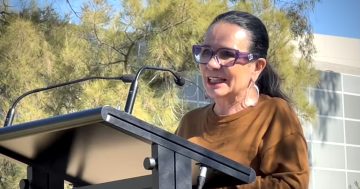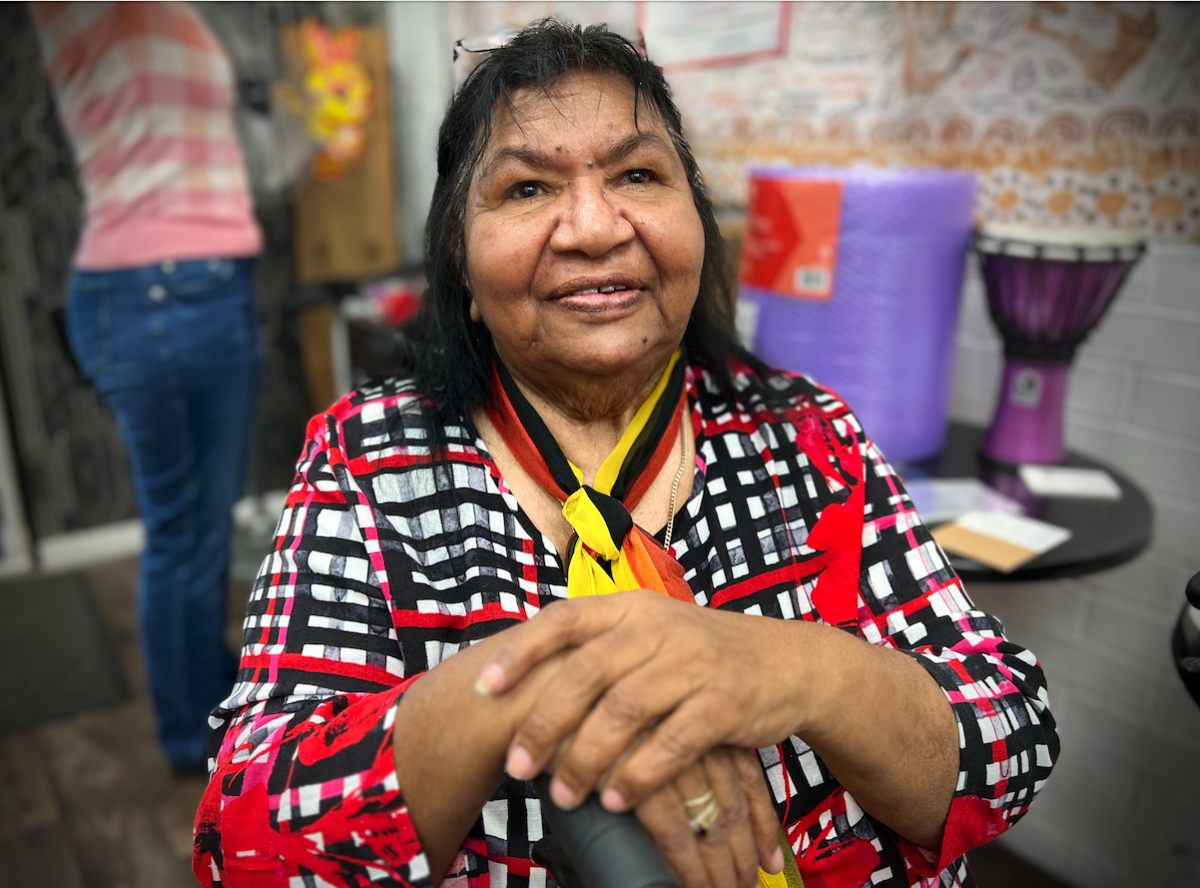
Aunty Fay shares the stories of her troubled past through art so that Australians will understand the “true history”. Photo: Chris Roe.
Aunty Fay (Moseley) Emerson’s life story is one of heartbreak and loss but also of extraordinary grace, healing and ultimately, hope.
The accomplished Wiradjuri artist is sharing her journey through a series of paintings on display at the Curious Rabbit Cafe in Wagga Wagga where she hopes people will take the time to gain “a better understanding of Aboriginal stories”.
Aunty Fay speaks gently as she reflects on a time not so long ago when Aboriginal people were not allowed to enter shops in her hometown of Leeton and when children were taken away from their families and trained for a life of unpaid servitude.
“My dad was born on Warangesda Mission in Darlington Point,” she says, indicating a portrait of a smiling Aboriginal man in uniform.
“He went off to the war and was one of the Rats of Tobruk in the 2/13th [infantry battalion] which is quite famous.”
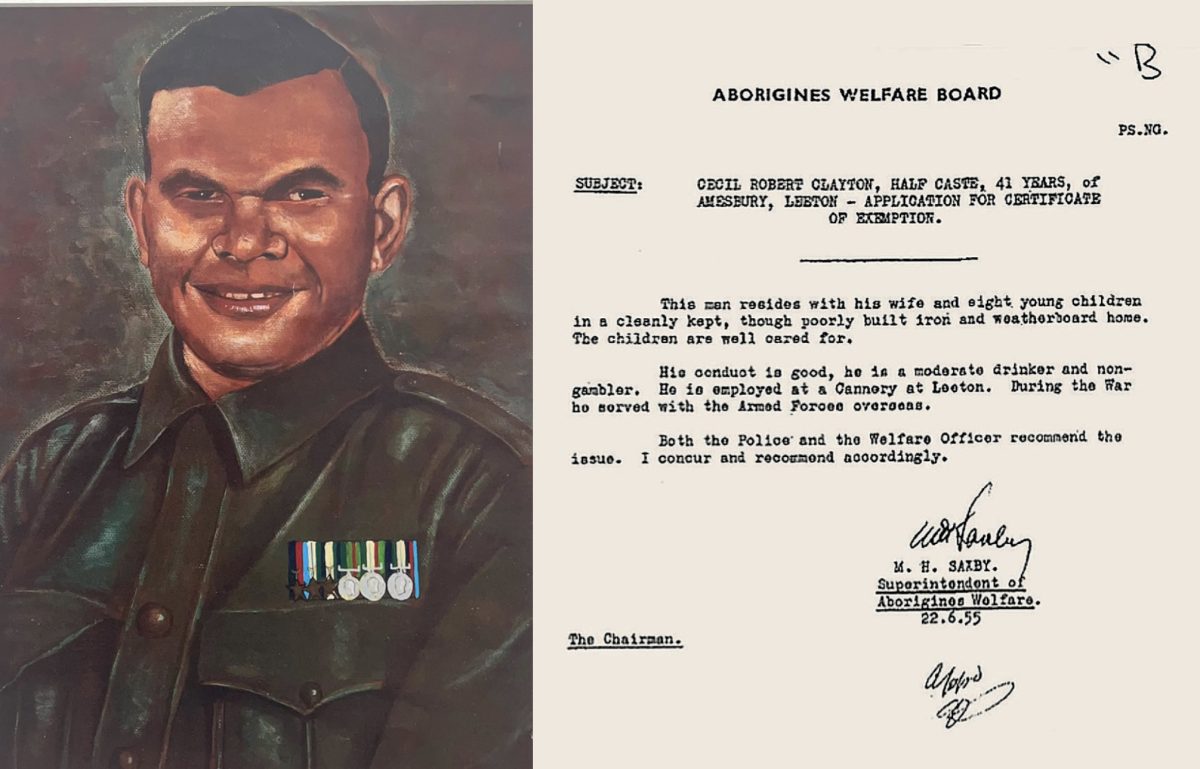
Cecil Clayton and a letter of recommendation for a certificate of exemption. Photo: Chris Roe.
When Cecil Clayton returned from the Second World War, he was issued with an exemption certificate which allowed him to live and work free from the restrictions of the Aborigines Protection Act on the condition that he severed ties with his culture and community.
He found work in Leeton, married and began to raise a family.
“They had nine of us!” Aunty Fay says with a chuckle.
“The welfare would always come and check in on us but Dad had been approved for the exemption certificate which said that they wouldn’t take his kids away.”
Aunty Fay opens a folder to display a photocopy of a recommendation dated 22/5/1955 that describes her father as “Cecil Robert Clayton, half caste, 41 years” whose conduct was “good”, his house “cleanly kept” and “the children well cared for”.
To this day, Aunty Fay can’t explain why welfare agents came for her.
“Mum and Dad were at work at the cannery and the welfare was watching us walk down to the train tracks to go to school,” she recalls.
“They grabbed the six of us, put us in the van and took us up to Leeton Hospital and from there they sent us to Cootamundra.
“So I grew up in the Cootamundra Girls Home and spent the rest of my time there wondering why we were taken. I’m still wondering why and I’ve never ever got an answer to that.”
Aunty Fay has captured the story of her removal in the painting Tears Among the Wattle.
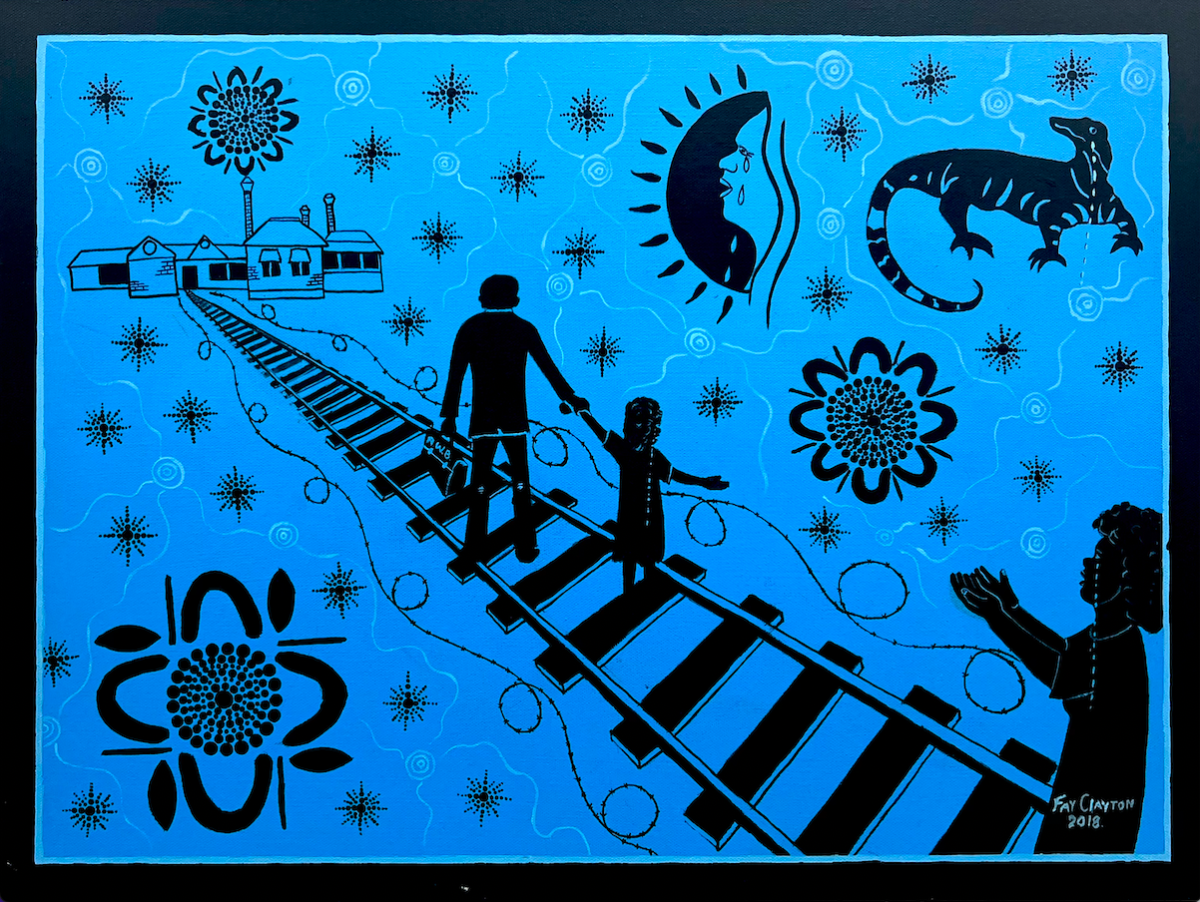
Tears Among the Wattle captures Aunty Fay’s removal as a 10-year-old. Photo: Chris Roe.
Cut off from her family and told that they “didn’t want us”, Aunty Fay endured a difficult time at the institution.
The former A-grade student was told she was “stupid” and placed in the bottom classes at school and trained to be a domestic servant.
She quietly recalls the abuse suffered by many of the girls and harsh punishments including being locked in the morgue “with the ghosts” overnight.
“When I turned 14 years and nine months that’s when they put us out to do domestic service on the farms and in houses,” says Aunty Fay.
“They never gave us any money because the money that they paid us was sent to the welfare in Sydney and they kept the funds.
“A few years ago when they decided that they would pay us for the stolen wages and all the years of working, they gave us just $11,000 each.”
It was after being assigned to work as a cleaner for a doctor in Sydney that Aunty Fay began to see a way forward and was able to train as an assistant and eventually passed the nursing exam with flying colours.
While she went on to marry and raise a beautiful family of her own, including grandchildren, captured in a picture she proudly shares, Aunty Fay still feels regret for what she lost as a child.
Her parents had separated after the removal of their children and when she finally got the chance to reconnect with her mother, she initially declined.
“My brother found her in Sydney and he said, ‘She’s down the road and she’d like to see us’ and I said, ‘No, she didn’t want us’ because I believed the lies I was told,” she explains.
“He was a big fella, and in the end, he chucked me over his shoulder and took me down the road and opened the door and said, ‘Here’s your daughter’, and that was how I met her again.”
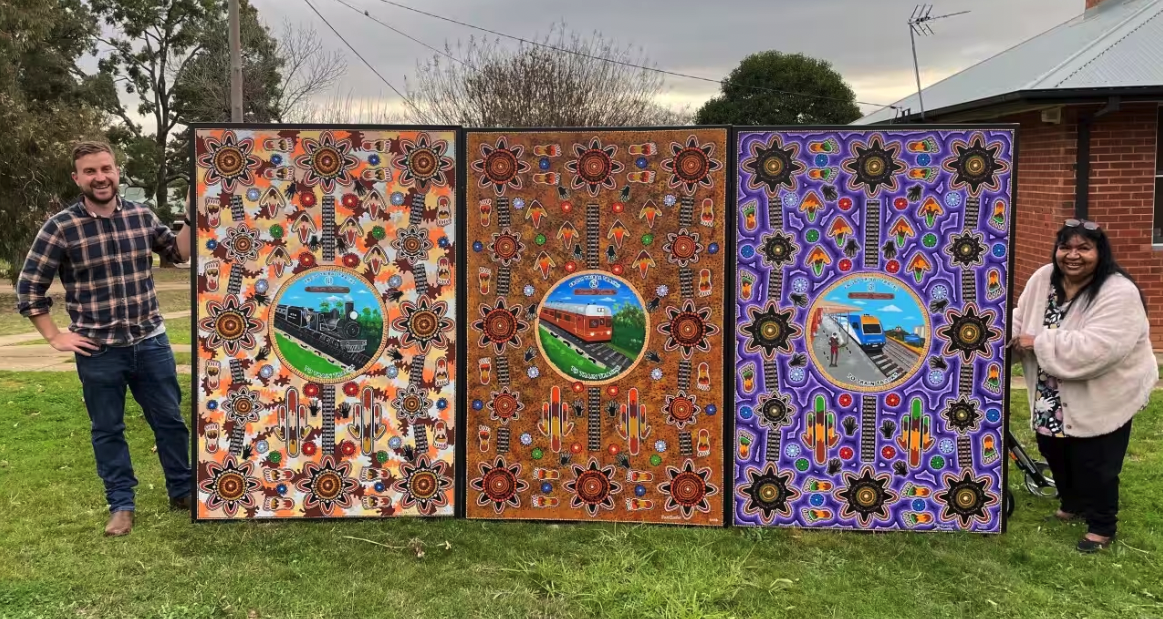
Aunty Fay with Transport for NSW Project Manager, Elliott Frost alongside her works that hang in Central Station, ‘From Tribal Tracks to Train Tracks‘. Photo: Transport for NSW.
Aunty Fay didn’t reconnect with her father until her mother’s funeral two years later.
“He said, ‘Which one are you?’ and I said, ‘I’m Fay’ and he said, ‘I’m your dad’ and I said, ‘Hello Dad,” she recalls with a sad smile.
“They were the only words we spoke and I just wish I’d have just grabbed him then before he went home.”
Over the years she has leaned on her strong Christian faith and her art to find strength and healing. Aunty Fay says both were a gift from her parents, who took them to church and also taught them to paint as children.
“In our house in the winter Dad used to get chaff bags and dip them in whitewash and then he’d nail them to the wall to stop the wind from coming in,” she says.
“Mum was always scribbling so she’d get up there and decorate and she’d teach us to paint and when we’d covered it all, Dad would wash it over and we’d start again.”
With the plight of Aboriginal Australians in the spotlight ahead of the referendum on an Indigenous Voice to Parliament, Aunty Fay says it’s important to listen and to understand our recent past.
“For 250 years everything’s been done to us, and for us, and they’ve spoken on our behalf,” she said.
“Please allow us a voice. Please allow us a committee so that they can act on advice from the communities.
“We really need to have our voice heard.”
You can see Aunty Fay’s work at the Curious Rabbit on Johnston Street, Wagga.







